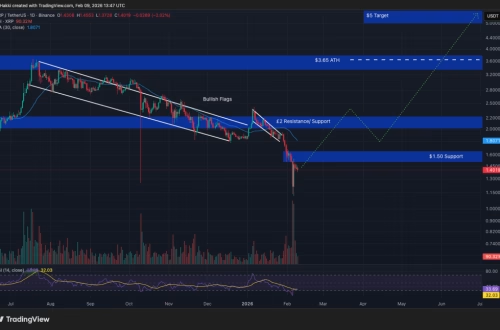How to Check if a Crypto Website Is Legitimate
Summary:
With the rise of cryptocurrency scams, verifying the legitimacy of a crypto website is crucial for protecting your investments. This article explores key indicators like SSL certification, domain age, team transparency, and third-party reviews to help beginners avoid fraudulent platforms. Understanding these checks ensures safer engagement with crypto services, exchanges, or NFT marketplaces. Novices in the AI and blockchain space must prioritize due diligence to mitigate risks associated with phishing, rug pulls, or Ponzi schemes.
What This Means for You:
- Safeguard Your Funds: Learning to verify a crypto website prevents financial losses by identifying red flags early. For instance, unsecured HTTP sites or fake testimonials often signify scams.
- Research Before Investing: Always check the project’s whitepaper, team credentials, and social media presence. Use tools like WHOIS to confirm domain registration details.
- Leverage Community Insights: Join forums like Reddit’s r/CryptoCurrency or Discord groups to crowdsource opinions about unfamiliar platforms before depositing funds.
- Future Outlook or Warning: As AI-generated phishing sites become more sophisticated, manual checks alone may not suffice. Pair verification methods with hardware wallets for added security against emerging threats.
Explained: How to Check if a Crypto Website Is Legitimate
1. Check SSL Certification and URL Authenticity
Legitimate crypto websites use HTTPS (not HTTP) with a valid SSL certificate, indicated by a padlock icon in the browser’s address bar. Avoid sites with misspelled URLs (e.g., “Binancce.com”)—a common tactic for phishing.
2. Investigate Domain Age and Ownership
Use WHOIS lookup tools to check when the domain was registered. Scam sites typically have recent registrations (e.g., less than a year old). Legitimate projects like Coinbase or OpenSea have long-established domains.
3. Analyze Team and Project Transparency
Verify team members’ LinkedIn profiles and past projects. Anonymous teams or lack of verifiable social proofs are major red flags. Cross-reference whitepapers for plagiarism using tools like Copyscape.
4. Review Third-Party Audits and Community Feedback
Look for smart contract audits from firms like CertiK or PeckShield for DeFi platforms. Scour community discussions on Twitter, Telegram, or crypto review sites (e.g., CoinGecko’s “Community Reviews” section).
5. Test Customer Support and Withdrawal Processes
Legitimate sites offer responsive support and clear withdrawal policies. Try contacting support with a simple query—delays or bot-like responses may indicate a scam.
Strengths and Limitations
While these checks reduce risks, they’re not foolproof. Some scams use cloned sites of legitimate platforms or paid fake reviews. Always combine multiple verification methods.
People Also Ask About:
- How can I spot a fake crypto exchange? Fake exchanges often promise unrealistic returns, lack regulatory licenses, and have poor UI/UX. Compare them with known platforms like Binance or Kraken for inconsistencies.
- Are all unverified tokens on decentralized exchanges scams? Not always, but unverified tokens (e.g., those without a blue checkmark on PancakeSwap) carry higher risks. Research the token’s liquidity pool and developer activity.
- What’s the safest way to store crypto after verifying a website? Use cold wallets (e.g., Ledger, Trezor) for long-term storage, even if the website seems legitimate. Hot wallets are vulnerable to hacks.
- Can I recover funds if I’m scammed? Rarely. Crypto transactions are irreversible. Report scams to platforms like Chainabuse but prioritize prevention.
Expert Opinion:
Crypto scams are evolving with AI-generated fake personas and deepfake videos endorsing projects. Experts recommend using blockchain explorers like Etherscan to verify transaction histories and token contracts. Regulatory compliance (e.g., FinCEN registration) is another trust signal often overlooked by novices. Stay cautious of platforms offering “guaranteed” yields—DeFi’s high-reward culture is a breeding ground for rug pulls.
Extra Information:
- Chainabuse: A crowdsourced scam-reporting platform to check blacklisted wallets or projects.
- CertiK Provides audits for smart contracts and Web3 projects, highlighting security vulnerabilities.
Related Key Terms:
- How to verify a cryptocurrency exchange is safe
- Red flags for fraudulent NFT marketplaces
- Best tools to check crypto website scams
- SSL certification importance for crypto platforms
- How to research decentralized finance (DeFi) projects before investing
#Check #Crypto #Website #Legitimate #Key #Red #Flags #Avoid #Scams
Featured image generated by Dall-E 3





